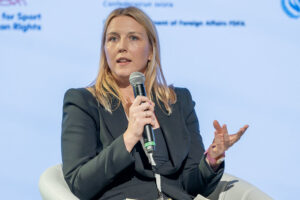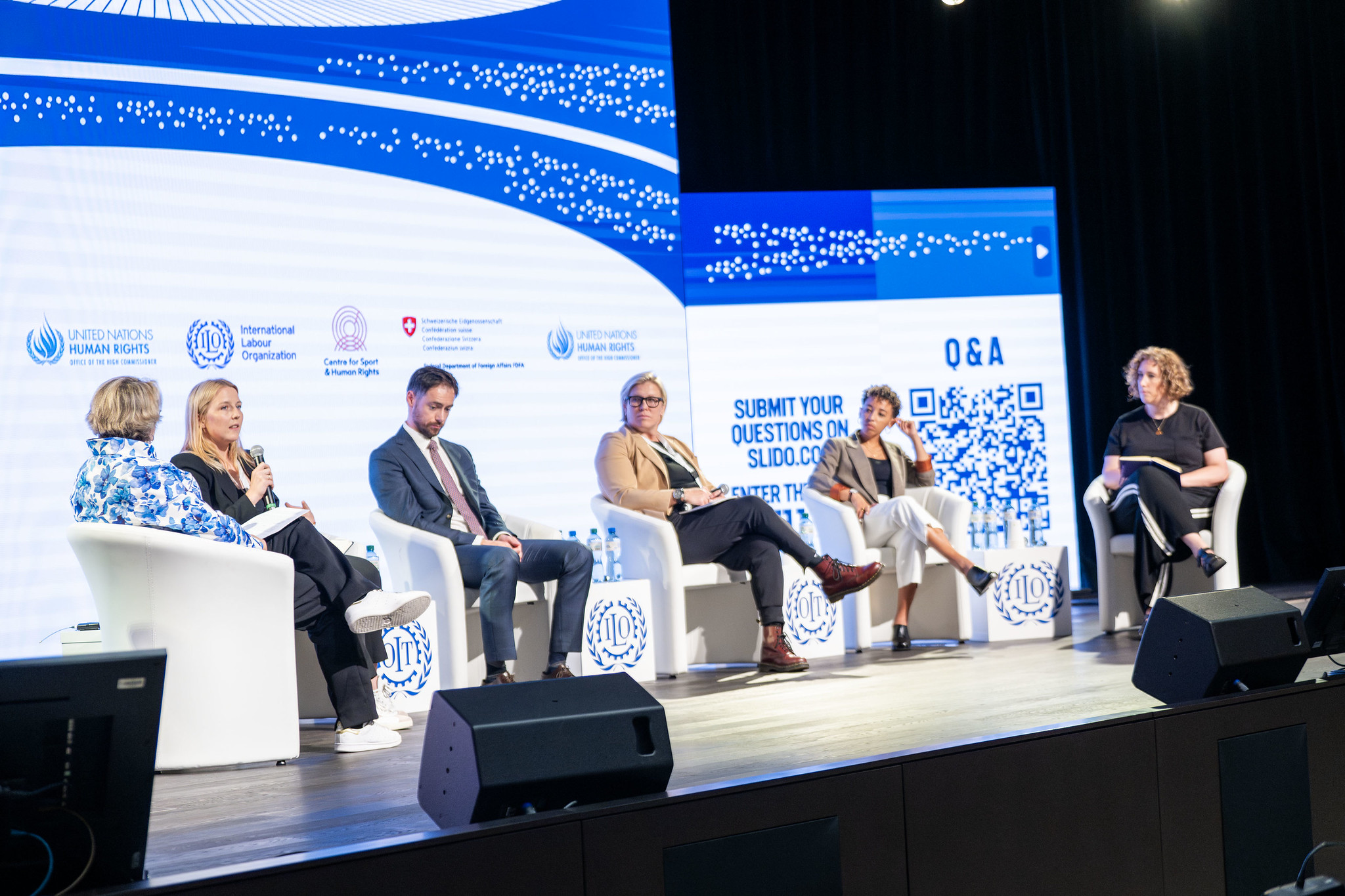To coincide with the UEFA Women’s EURO 2025, the International Labour Organization (ILO), in partnership with the Swiss Government, the Office of the United Nations High Commissioner for Human Rights (OHCHR), and the Centre for Sport and Human Rights, convened a high-level symposium on Decent Work and Responsible Event Hosting in Women’s Sport.
The event brought together a wide range of stakeholders from across European and global sport to examine the challenges and opportunities facing women in sport. Among the participants were representatives and members of the European Elite Athletes Association (EAPA), which played a central role in the discussions.
EAPA General Secretary Paulina Tomczyk featured prominently throughout proceedings, notably contributing to an enlightening discussion about “Evolving Working Conditions in Women’s Sport.” During the session, she provided valuable insights into the current state of female athletes’ labour rights in Europe, recognising recent progress while highlighting the persistent structural challenges many athletes still face.
Tomczyk noted that while the professionalisation of women’s sport has advanced significantly in recent years, many female athletes continue to encounter serious obstacles to fair and safe working conditions. These include low pay, inadequate medical support, unequal or substandard facilities, and a continuing lack of maternity protection.
She underscored the essential role of athlete and player associations in identifying these issues, promoting social dialogue, and advocating for meaningful improvements, and called on decision-makers to engage directly with athlete unions to ensure that policies and practices are aligned with the needs and rights of those on the field.

Tomczyk further stressed that achieving decent work in women’s sport requires the full recognition of professional athletes as workers, entitled to the same labour rights and protections as others. Access to fair wages, social security, maternity leave, and safe working environments, she concluded, is vital for ensuring the sustainable and equitable development of women’s sport.
“Female athletes are required to train, compete, and behave as professionals, but are not treated as such by their employers,” Tomczyk said. “We need real commitment from sporting bodies to ensure decent work and the growth of women’s sport.
“Listen to the athletes,” she implored, “Work together with athlete unions because together we can find solutions instead of looking for more excuses.”
In addition to athlete welfare, the symposium explored how major sporting events can be hosted in a way that upholds human rights principles and ensures gender equity and decent work at every level of organisation and delivery.
As women’s sport continues to gain global momentum, the messages from the event underscored a growing consensus: real progress will only come when athletes are treated not only as competitors but as workers – with dignity, rights, and a voice in shaping their own future.

